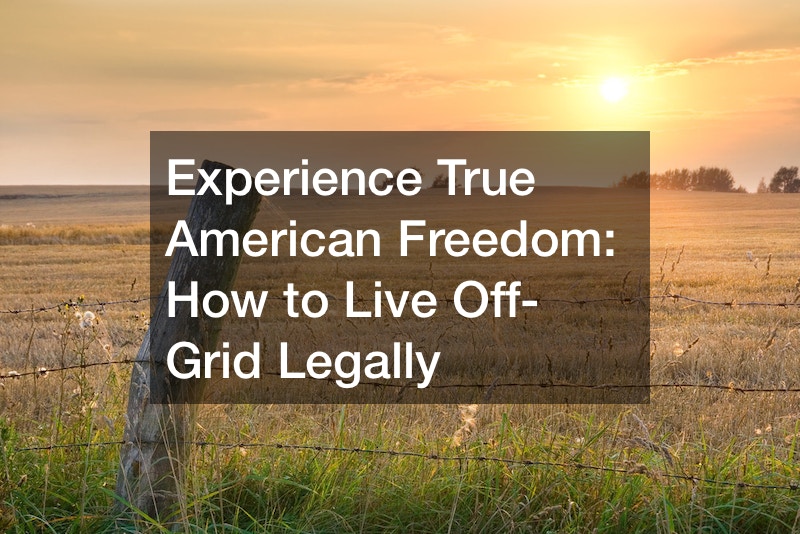Image Source: https://americaspeakon.org/experience-true-american-freedom-how-to-live-off-grid-legally/
Experience True American Freedom How to Live Off Grid Legally America Speak On
Also, you should respect the property lines of other owners and take care to clean up after your pet. Respecting other's properties and not crossing the boundaries is another crucial aspect. If you're looking to learn the legal ways to live off grid, being a good neighbor is a must. Be respectful of your neighbor's way of life and be kind to them. If your neighbor is an Amish or a person of the Amish, it's a wise idea to stay away from any power tools, or generate too much noise that could interfere with their everyday life. Employ a professional engineer
A qualified engineer for microgrids can assist you in conceiving and construct a reliable off-grid system that's sustainable to your residence. They can also help you resolve any issues that you have with your system. An engineer with experience is beneficial to be sure your system works properly should you be serious about moving off grid. Most engineers are also familiar about the laws that govern living off grid, which is why they are able to assist you with any legal pitfalls you could come across.
legally.
Always follow the Solar Power LawsIf you're off the grid, solar services are a great method of generating power for your house. Many states require that you obtain a permit to install solar panels. There are also setback restrictions which dictate how far your solar panels have to be from the property. It is also possible to limit the width of the panels. In certain instances, you may need to apply to have a variance approved by your local zoning boards. It's recommended to seek out a professional engineer who can guide you through understanding the rules and regulations and how you could live off of the grid without causing any harm.
Be Certain Your Home is protected and has legal materialsThe services of insulation for your home are an excellent way to maintain heat in winter and cool during summer. There are however some insulation materials that are not legally permitted to use throughout the United States. For example, asbestos is n
.